第14章 Section 1(2)
There were still the fine old red-brick houses to left and right of him; the reservoir had been improved by a portico of marble, the white-fronted inn with the clustering flowers above its portico still stood out at the angle of the ways, and the blue view to Harrow Hill and Harrow spire, a view of hills and trees and shining waters and wind-driven cloud shadows, was like the opening of a great window to the ascending Londoner. All that was very reassuring. There was the same strolling crowd, the same perpetual miracle of motors dodging through it harmlessly, escaping headlong into the country from the Sabbatical stuffiness behind and below them. There was a band still, a women's suffrage meeting--for the suffrage women had won their way back to the tolerance, a trifle derisive, of the populace again--socialist orators, politicians, a band, and the same wild uproar of dogs, frantic with the gladness of their one blessed weekly release from the back yard and the chain. And away along the road to the Spaniards strolled a vast multitude, saying, as ever, that the view of London was exceptionally clear that day.
Young Holsten's face was white. He walked with that uneasy affectation of ease that marks an overstrained nervous system and an under-exercised body. He hesitated at the White Stone Pond whether to go to the left of it or the right, and again at the fork of the roads. He kept shifting his stick in his hand, and every now and then he would get in the way of people on the footpath or be jostled by them because of the uncertainty of his movements. He felt, he confesses, 'inadequate to ordinary existence.' He seemed to himself to be something inhuman and mischievous. All the people about him looked fairly prosperous, fairly happy, fairly well adapted to the lives they had to lead--a week of work and a Sunday of best clothes and mild promenading--and he had launched something that would disorganise the entire fabric that held their contentments and ambitions and satisfactions together. 'Felt like an imbecile who has presented a box full of loaded revolvers to a Creche,' he notes.
He met a man named Lawson, an old school-fellow, of whom history now knows only that he was red-faced and had a terrier. He and Holsten walked together and Holsten was sufficiently pale and jumpy for Lawson to tell him he overworked and needed a holiday.
They sat down at a little table outside the County Council house of Golders Hill Park and sent one of the waiters to the Bull and Bush for a couple of bottles of beer, no doubt at Lawson's suggestion. The beer warmed Holsten's rather dehumanised system.
He began to tell Lawson as clearly as he could to what his great discovery amounted. Lawson feigned attention, but indeed he had neither the knowledge nor the imagination to understand. 'In the end, before many years are out, this must eventually change war, transit, lighting, building, and every sort of manufacture, even agriculture, every material human concern----'
Then Holsten stopped short. Lawson had leapt to his feet. 'Damn that dog!' cried Lawson. 'Look at it now. Hi! Here!
Phewoo--phewoo phewoo! Come HERE, Bobs! Come HERE!'
The young scientific man, with his bandaged hand, sat at the green table, too tired to convey the wonder of the thing he had sought so long, his friend whistled and bawled for his dog, and the Sunday people drifted about them through the spring sunshine.
For a moment or so Holsten stared at Lawson in astonishment, for he had been too intent upon what he had been saying to realise how little Lawson had attended.
Then he remarked, 'WELL!' and smiled faintly, and--finished the tankard of beer before him.
Lawson sat down again. 'One must look after one's dog,' he said, with a note of apology. 'What was it you were telling me?'